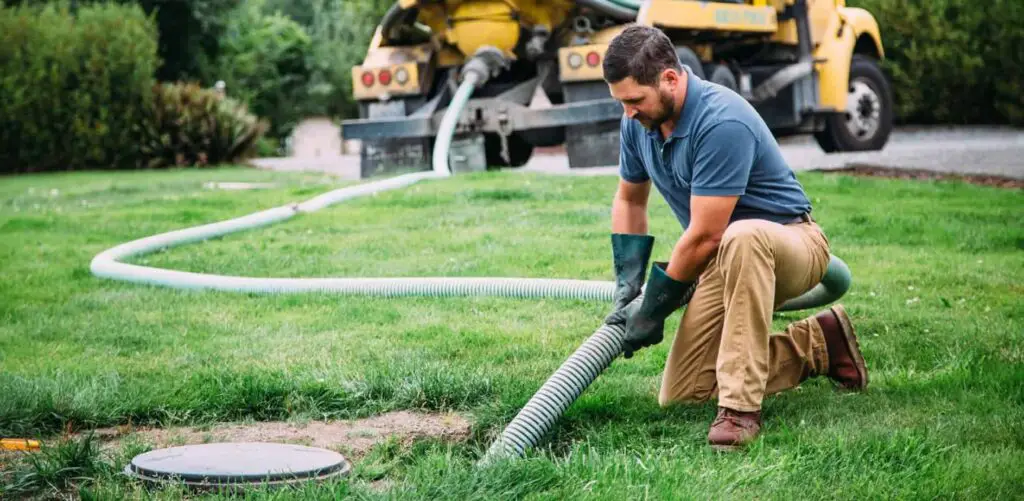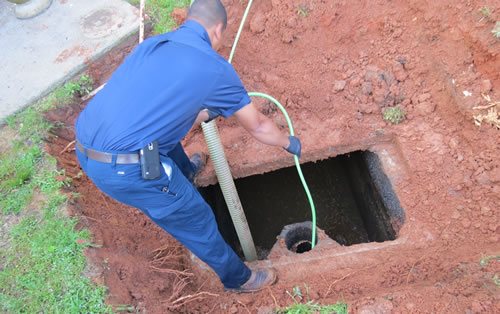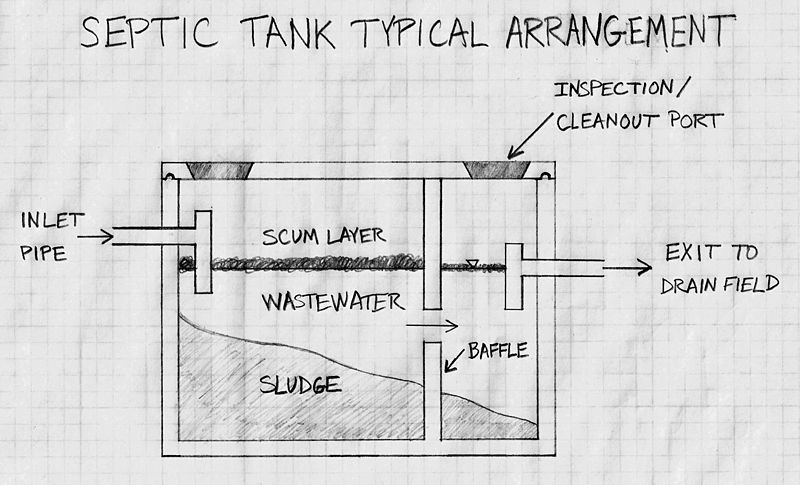How Often Does a Septic Tank Need to Be Pumped? – How to Care For Your Septic System
As a homeowner, you need to know how often your septic tank needs to be pumped. This will ensure that the septic system functions well or there is no malfunctioning or damage to drain field.
However, with scheduled pumping and maintenance, things can be hassle-free. In this article, we talk about how often the septic tank needs to be pumped, the usual frequency, and the various associated factors related to pumping the septic tank.
So, how often does a septic tank need to be pumped? In an average household, the septic tank should be pumped every three years by professionals. Household septic tanks are recommended to be pumped every 3 to 5 years, considering a few factors.
If you need septic service call Call Septic Service Pros 1.855-925-0760 For Service or Request a Quote
Or visit our national septic service directory to find a local service provider near you.
There are a few other factors that influence how often when you need to pump. Pumping frequency depends on the septic tank size, usage, and also the number of members living in the household. Keep reading to know more about the frequency of pumping a septic tank and how to plan your septic tank pumping schedule.

How Much Time Does it Take the Septic Tank To Be Full?
You can tell your tank needs pumping by viewing the scum layer. Scum and sludge should not fill more than 30% of the septic tank. Thus, it might take around 5 years for an adult to fill 300 gallons of any septic tank that has a capacity of 1000 gallons. Thus, if it is a family of four members, the septic tank might fill up in 1.5 years.
Thus, if one calculates, considering the fact that adults may go for work, children go to school, and the family might go for vacations, it is possible that the septic tank may be pumped every three to five years.
Read more –Types of Septic Tanks
What Are the Signs That the Septic Tank Is Full?
Many people do not have their septic tank pumped as they feel it is working just perfectly. However, to ensure its lifespan, it is important that the septic pump is cleaned and pumped at least once every three to five years. How often you need to pump depends on several factors.
Here are some signs that the septic tank is full:
- Stinking Smell – As the septic tank fills up, there is an accumulation of gas. It creates a strong foul odor as it has nowhere to go. If you are getting that foul and stinking odor, you may have to call the professionals to pump your septic tank.
- Pooling Water – If you notice that the area surrounding the tank is marshy or water pooling, it might be due to a blocked drainage pipe. It might be that the tank is overflowing as it is full.
- Slow Draining – If you are noticing a slow drainage when you are flushing the toilet, it might be there is some problem. If the septic tank is full, this often happens. If you can get it pumped, it might solve the problem.
- Greenery Around the Septic Tank – If you find that the area around the septic tank is quite green and it doesn’t happen usually, it is a sign that there is a leakage. There might be water pooling which has helped in the growth of grass patches.
Factors That Might Increase the Pumping Frequency Of Your Septic Tank
Though you might have a schedule for pumping your septic tank, there are a few factors which might bring a change in the pumping frequency.
Here are some factors that influence the frequency that your septic tank needs pumping:
- Using a Garbage Disposal – If you are using a food waste grinder or a garbage disposer, it might increase the pumping out frequency.
- Using Water Conditioner or Water Softener – Using water softeners may increase the pumping frequency. There might be problems related to excess salt dosage which might reduce the bacterial action. This might impact the drain field functioning. Click here to know how restore a septic drain field.
- Using an Ejector Pump – If there is a sewage ejected pumper that is connected to your septic tank, it might increase the pumping frequency. It might add macerated sewage and this might push some floating solids in the drain field.
- Sudden Increase in Number of People – Septic pumps in any house have a certain capacity. This is based on the number of people using it regularly. If there is a sudden change in the number of people using it, you might have to change its pumping frequency.
- In Home Business – If you start an in house business like daycare center or hair salon and your property is used by many people, you might have to look for changing in its pumping frequency. It might need frequent pumping.
- Laundry Frequency – The more frequent you are doing laundry, the more will be the pumping requirement. This is especially when in situations, when you are cleaning a lot in a short duration of time.
It might happen that the waste water starts filling up the tank too soon as it cannot manage the system. Know more about some septic safe laundry detergents which can be helpful for you.
Ensure that you do not cause undue stress on the septic tank which can cause it to malfunction. If it malfunctions, you might have to pump it in an emergency situation, which means additional costs.
Questions Related to How Often Does a Septic Pump Need To Be Pumped?
- How Do I know If My Septic Pump Needs Pumping?
You have to watch out for signs like a foul odor that doesn’t seem to go away, clogging toilets, gurgling sound, slow draining pipes, greenery around the septic tank, and even water pooling around the septic tank.
- What Will Happen If I Do Not Pump the Septic Tank on Time?
If you do not pump the septic tank adequately, its holding capacity might be diminished. The solids might backup and clog the pipes. If the pipes are clogged, it will lead to many other problems like unusual smell, clogging & gurgling of pipes, and eventually wastewater backup.
- How do I calculate the frequency of pumping out my septic tank?
The frequency of pumping out a septic tank depends on the tank capacity and the number of people who are living in the house regularly?
- Should I Pump Out My Septic Tank Before a Big Gathering or Large Party?
Yes, it might be a good idea to pump out the tank before such a big gathering. This is especially when you haven’t pumped it out in a year. If there is a large wastewater flow, the septic tank might be temporarily overloaded. This might cause problems.
- Will it Take a Long Time to Pump the Septic Tank?
It does not take a long time to pump a septic tank. Usually, it takes approximately 20-35 minutes for cleaning a 1000-gallon tank. Read more for additional information on time taken to pump a septic tank.
- How Much will it cost to pump out a septic Tank?
The cost of pumping a septic tank depends on the size of the tank, location, ease of access, and contractor. The national average cost ranges between $295 to $610. Read more about the cost of pumping a septic tank.
If you are confused and do not know about the right time of pumping out a septic tank, you can get in touch with professionals. Professionals will consider various factors like the size of the septic tank, the number of people living in your property, and other facts before they will suggest a pumping frequency.
Check out national directory of septic tank service companies here.
Sources:
https://extension.psu.edu/septic-tank-pumping
https://www.totalseptic.com/what-happens-when-you-don-t-clean-your-septic-tank
https://www.carls-septic-tank-systems.com/septic-tank-pumping-schedule.html
https://inspectapedia.com/septic/Septic_Tank_Pumping_Schedule.php











